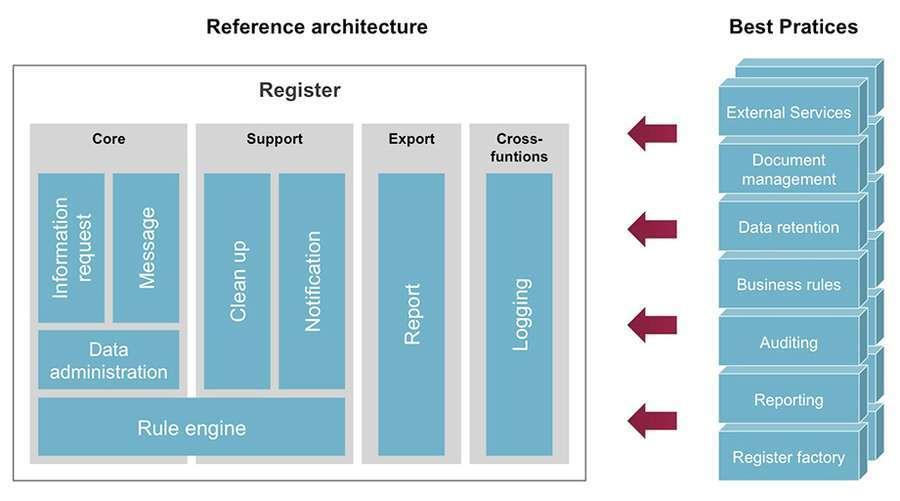Powerful electronic registers form the basis of modern, efficient administration. Through the electronic gathering, maintenance and provision of data, administration processes can be automated and new services can be created across public authorities. This is the key to successful E-government.
Electronic registers require a high level of quality and reliability. The confidentiality and integrity of the data, which is mostly of a personal nature, is a priority here. At the same time, the saved information must be available quickly and easily at all times. Interoperability and secure communication between the registers and business applications of different authorities are central aspects in this regard. Moreover, registers are usually created as a result of strict legal requirements and under complex conditions. Tight schedules and changing (legal) requirements are common in such processes. In order to meet the resulting demands, flexible, adaptive architecture is needed.
Tried and tested concepts are therefore necessary when it comes to the implementation of corresponding development projects. Benefit from our expertise. We support you with extensive experience and technological expertise. In doing so, we make use of our own developments, established standards as well as product solutions from our partners, which conform to the Standards and Architectures for E-Government Applications (SAGA). Our experts have developed a reliable, flexible and expandable reference architecture with appropriate best practices. On this basis, we can provide registers quickly and efficiently to meet your needs.
Our best practices address typical challenges in the design of a concrete register, including
- Provision and integration of external services using XML for Public Administration (XÖV)
- Efficient data management for individual inquiries and complex analyses
- Auditable long-term storage of documents using SecDocs
- Definition and management of business rules for processes, data protection and quality assurance
- Traceability of access data through auditing
- Creation of evaluations and reports
- Use of the Register Factory at the Federal Office of Administration for efficient development and operation of registers




